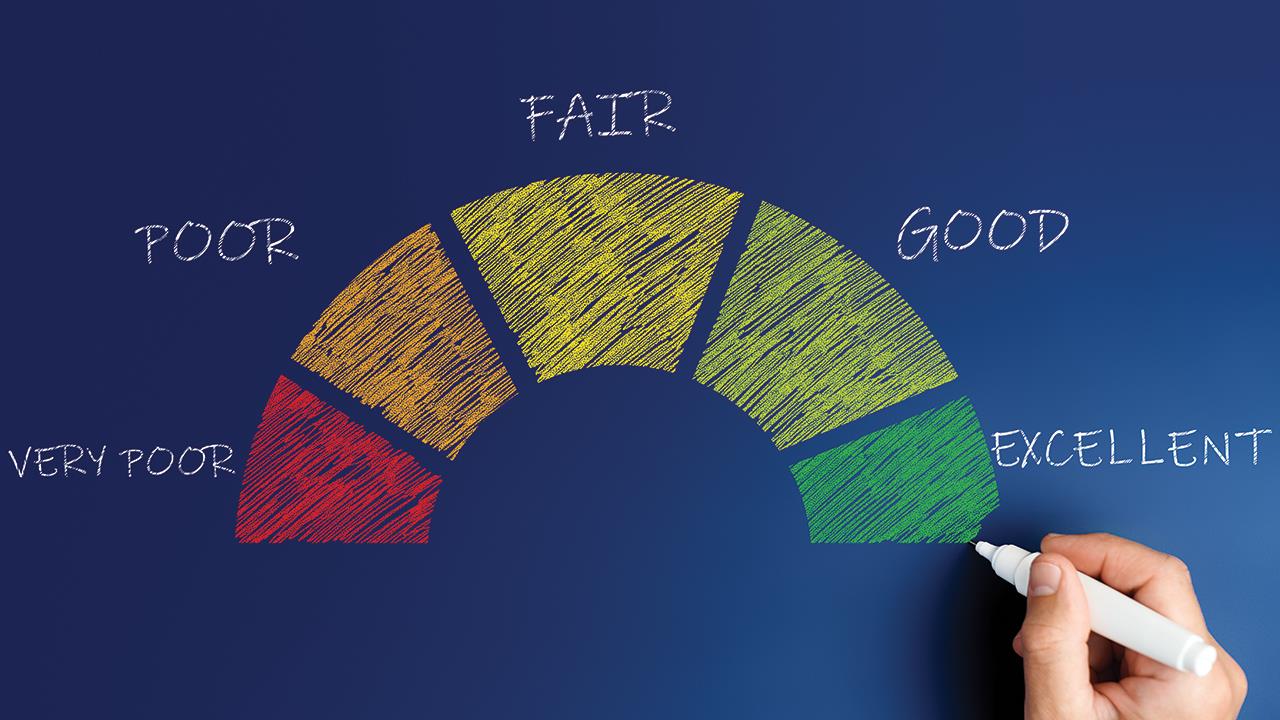

Adam Bernstein explores the topic of credit for businesses and why having a good credit score is so important when you’re looking to borrow.
Access to cash can be restricted or carry a burdensome cost if a borrower is seen as risky. Typically, we’re credit checked and either approved or rejected, or have it granted but on expensive terms. Credit checking ties an individual’s record to publicly available information and that which is shared by financial organisations with credit reference agencies.
But not everyone appreciates that the process applies to businesses too; if firms want the best terms, they need to maintain a good credit score.
A credit score is a measure of creditworthiness, which comprises a number of different factors to understand financial position and level of financial risk. This information is combined to create a score which influences whether companies are seen to be a repayment risk. Experian, for example, uses a system that gives a credit score that can range from 0 to 100, with 0 representing a high risk and 100 representing a low risk. 0, for example, would be applied to a failed company, 26-50 to an above average business, while 91-100 is a very low risk firm.
Business information is held by a number of credit reference agencies and comes from multiple sources, including creditors, such as banks, credit card companies, and building societies, as well as publicly available records such as Companies House or the main Gazettes.
It’s collated with data on payment performance, County Court Judgments (CCJs), and bankruptcies. Of course, it’s entirely possible that a business can hunt down some of the information itself. But the benefit of using a credit reference agency follows from the fact that agencies will look at data in a number of ways, using aggregated data sources and applying analytical methodologies to build the score. Agencies use databases that have been built up over time to understand how businesses that were created historically have performed through an extended period.
Because of these processes, businesses should try to maintain a good report as it influences their ability to make purchases. But while business credit ratings are not as ubiquitous as personal credit ratings, they are more prevalent when dealing with larger purchases or lending decisions.
The problem for businesses with little to no financial history – known as ‘thin file’ businesses – is that they may struggle to be accepted or get the best rates. In these circumstances, a business owner’s or director’s personal credit scores can be considered to help with the decision.
Where information held is inaccurate or plainly wrong, steps should be taken to correct it. The only option is to dispute the business credit report by contacting the relevant credit reference agencies. Not only can they correct data that can be shown to be inaccurate, but they also have services to review company reports.
The wonder of information is that it invariably has more than one purpose. Just as a credit report allows a lender a window into the world of a (potential) borrower, so the process can be reversed by a business looking to check on its suppliers and its (corporate) clients to ensure they can pay for their services. It’ll also help set credit terms granted to clients.
However, checking potential clients for their ability to pay isn’t the only advantage of credit checking. Credit information helps fight fraud in that a business can confirm contacts and clients are who they say they are, and that their business is performing the way they say it is.
Credit reference agencies offer a variety of services to support businesses, such as ad-hoc credit reports or data for account opening and account management. Each agency has its own variants – Equifax, for example, offers products to age verify, bank account verify, document verify, and more.
The costs associated with credit information aren’t as horrific as might be expected. For example, Experian’s Business Express allows the checking of clients and costs from £25 per month. Alternatively, to check a business’s own credit score, Experian offers My Business Profile at a cost of £24.99 per month.
Like it or not, credit information exists and is here to stay. Whether it’s to borrow or to seek terms with a supplier, having a whiter than white report is going to put a business head and shoulders above its rivals.
If you'd like to keep up-to-date with the latest developments in the heating and plumbing industry, why not subscribe to our weekly newsletters? Just click the button below and you can ensure all the latest industry news and new product information lands in your inbox every week.